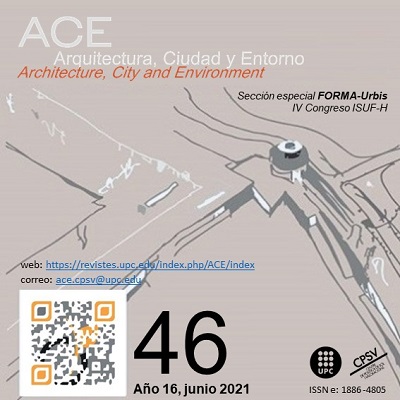LABTUR: A Methodological Contribution to the Practices of Co-creation of Public Space
DOI:
https://doi.org/10.5821/ace.16.46.9893Keywords:
Urban space, experimental urban laboratory, co-creation, collaborative methodologiesAbstract
The city has been the scene of debates in recent decades, the result of growing urbanization and the consequent complexity of urban problems, which impose profound changes in the way of conceiving, producing and managing urban space. Urban laboratories emerge as collaborative learning and experimental environments, exploring new paths for the shared production of knowledge and solutions to current urban problems, promoting collective intelligence based on local experiments tested within a specific culture and situated context. Starting from the idea of an experimental urban laboratory, this research aims to present the first edition of LABTUR, developed in the program TUR: Co-creating Public Spaces, an action-research project carried out in an academic context, in collaboration with the City Council of Cascais, in Portugal. The article presents the results of LABTUR and discusses learning based on co-creation dynamics, contributing to the definition of a collaborative methodology that promotes the design of a more sustainable and inclusive public space.
Downloads
Published
Issue
Section
License
| INTELECTUAL PROTECTION CRITERIA |
At this moment, it is count with the "Oficina Española de Patentes y Marcas", while global protection it is being processed by the World Intelectual Property Organization (OMPI/WIPO). Nevertheless the International Standard Serial Number Office (ISSN) has given the following numbers ISSN: 1886-4805 (electronic version) and 1887-7052 (paper version). All articles will be peer reviewed, using double blind reviewing. |
| COPYRIGHT |
The article contents and their comments are authors exclusive liability, and do not reflect necessarily the journal editor commitee's opinion. All ACE published works are subject to the following licence CC BY-NC-ND 3.0 ES http://creativecommons.org/licenses/by-nc-nd/3.0/es/ It implies that authors do not hold nor retain the copyright without restrictions but only those included in the licence. |





































